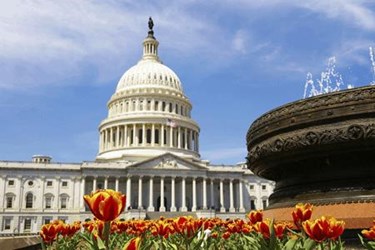Employers Be Prepared: H-1B Visa Petitions Are Under Attack By Trump Administration
By Willard Krasnow, Constangy, Brooks, Smith & Prophete

The H-1B visa is one of the most important immigration law options to employ foreign workers on a temporary basis, and because it is viewed as the option for skilled professional positions that require at least a bachelor’s degree (U.S. or foreign equivalent), technology companies typically hire more H-1B workers than any other sector. For experienced immigration practitioners, H-1B petition approvals have generally been considered to be routine, but the Trump administration’s attack on the H-1B visa petition has changed this long-standing perception.
Petition extensions for existing H-1B’s regularly are filed throughout the year. Further, about 85,000 petitions for new H-1B visas are awarded via lottery each year in early April, which typically accounts for less-than-half of the annual petition filings for new H-1B’s.
Although there have been no substantive changes in the law under the Trump administration – in the statute or regulations – there surely has been a change in the decision process (adjudication) of these and other petitions. The Trump administration has made the H-1B visa the visible symbol of what is wrong with our work visa programs – a program that is claimed to be fraught with fraud and abuse and is inconsistent with the president’s “America First” policy and his Buy American and Hire American (BAHA) Executive Order.
This article outlines five specific actions that have been taken by the Trump administration to restrict and deter the H-1B visa program and what employers can do to respond to these actions.
Trump Administration Changes To H-1B Visa Program
Increased denials and requests for evidence. The Trump administration, while not changing the applicable law, has tightened the standards in the adjudication of H-1B and other petitions by the U.S. Citizenship and Immigration Services (USCIS), the agency that adjudicates the filed petitions and applications. This development is consistent with the President’s BAHA policy. Without explanation or advance notice, USCIS has raised the standards for petition approval, and long-standing practices in the filing of H-1B petitions are being questioned. This development is corroborated by a significant increase in petition denials and in Requests for Evidence (RFE) by USCIS, which require more evidence to be produced for USCIS to decide in an H-1B case. In fact, USCIS’s RFE’s for 2017 increased by more than 45 percent over the same time frame in 2016, and there was a 41 percent increase in petition denials from the third to fourth quarter of FY2017. Where required evidence is not provided, an RFE is understandable, but this increase in RFE’s indicates heightened scrutiny and suspicion as to whether the evidence provided was insufficient.
Specific examples of RFE topics will be addressed herein, along with the new USCIS policy change guidance (effective September 11, 2018) to make it easier to deny H-1B and other petitions and applications. Because of these policy changes, especially the increased risk of petition denials, employer petitioners and applicants must take extra care to document (and perhaps over-document) all the required elements of their filings. For example, in general, employers should no longer file minimally-supported H-1B petitions with the thought that more evidence can be submitted if an RFE is issued. If a deficient petition is filed on an emergency basis, the petitioner or applicant should understand that denial may very well be the result.
More pressure on evidence reporting in initial application. The Trump administration further has raised the bar to petition approval. First, USCIS’ new guidance will allow adjudicators “to deny an application, petition, or request without first issuing a Request for Evidence (RFE) or Notice of Intent to Deny (NOID) if initial evidence is not submitted or if the evidence in the record does not establish eligibility.” The intent is to give adjudicators more discretion to deny a petition or application without requesting more information first. This new guidance is consistent with the agency’s more recent stringent standards for approval of petitions and applications.
The opportunity to submit additional evidence requested by an RFE or NOID has long been a practice of the USCIS and its predecessor, the Immigration and Naturalization Service. In 2013, the Obama administration issued a guidance that allowed adjudicators to deny petitions or applications without the issuance of an RFE or NOID where “there was ‘no possibility’ that the deficiency could be cured by the submission of additional evidence.” However, the new guidance that will take effect in September 2018 states that this “no possibility” standard limited adjudicators’ discretion too much – in essence, to cases where there was no statutory basis for the benefit requested (“where a nonexistent benefit is requested”). The new guidance is much broader and will allow for summary denials even in cases where insufficient initial evidence is presented.
The new guidance states as follows: “If all required initial evidence is not submitted with the benefit request, USCIS in its discretion may deny the benefit request for failure to establish eligibility based on lack of required initial evidence.” Cases where a nonexistent benefit is requested, of course, should be denied. However, “insufficient evidence” can include submitting the right evidence but not “enough” of it (a subjective standard) or omitting a required piece of evidence.
Second, USCIS recently has rescinded the Obama administration policy that USCIS, in reviewing a petition extension for a previously approved petition, was “to give deference to the findings of a previously approved petition…” (absent evidence of changed circumstances or a material error or fraud related to the prior petition).
Narrowing definition of specialty occupation. In its adjudications, USCIS has tightened the H-1B definition of a “specialty occupation.” While the H-1B category is often viewed broadly as a professional position requiring a bachelor’s degree in a relevant field, a more narrow definition has increasingly been applied in recent adjudications stemming to the Obama administration. The statutory definition is more narrow includes occupations that require theoretical and practical application of a body of highly specialized knowledge and the attainment of a bachelor’s degree (or higher) in a specific specialty, or its equivalent, as a minimum entry into the occupation. Also, the Trump administration in its Spring Regulatory Agenda said that it intends to tackle further the interpretation of the definition of “specialty occupation.”
Positions in fields where there is a direct correlation to a bachelor’s or higher degree – such as accounting, engineering, medicine or lawyer – are not problematic. However, USCIS has questioned certain computer occupations. For example, Computer Systems Analysts have been the subject of USCIS H-1B petition denials because, according to USCIS, this position may permit many academic avenues to be qualified. As a result, USCIS has questioned whether this occupation can be deemed to be tied, as required, sufficiently to a specific field of academic study.
Pending any new Trump administration regulations, H-1B petitions need to address, where necessary, how the occupation is tied to a specific field of study or its equivalent (and how this bolded language is interpreted is critical).
USCIS questions acceptance of entry level-paid positions. In last year’s H-1B visa lottery period, the USCIS granted numerous RFE’s and denials where the petitioning employer paid the beneficiary Level 1 wages for the position, which under U.S. Department of Labor rules are reserved for entry level positions. H-1B petitions require the inclusion of a Labor Condition Application (LCA) filed by the employer and certified by the USDOL. Typically derived from USDOL websites, the LCA specifies the occupation title and the wage level (there are four) to be paid.
Last year, USCIS took the position that Level 1 positions: a) were not sufficiently complex to meet the definition of a specialty occupation; or b) were inconsistent with the position described in the petition.
USCIS is clearly wrong as entry level bachelor’s degree professionals can perform duties consistent with their relevant fields of study just as entry level attorneys and medical doctors can. Recent decisions of the Administrative Appeals Office of USCIS also emphasize that a Level 1 wage is appropriate if the position’s job duties and requirements are consistent with those listed by USDOL for the applicable occupation title (found on the USDOL’s O*NET website). If the position has additional requirements than specified by USDOL’s occupation title (e.g. a master’s degree), then a Level 1 wage may no longer be appropriate.
It is expected that petitions with Level 1 wage rates will continue to be USCIS targets. Level 1 wage rates should be used in the appropriate case with caution and be documented properly in the H-1B Petition.
Conclusion
Employers in the tech field understand that the H-1B visa, while now under attack, plays an important role in their businesses. Employers and their attorneys need to be alert to the new obstacles faced and prepare well-documented petitions in response.
About The Author
Willard (Will) Krasnow is a partner in the Boston office of Constangy, Brooks, Smith & Prophete LLP, where he counsels clients on a wide range of immigration and labor & employment issues. Krasnow may be reached at wkrasnow@constangy.com.
